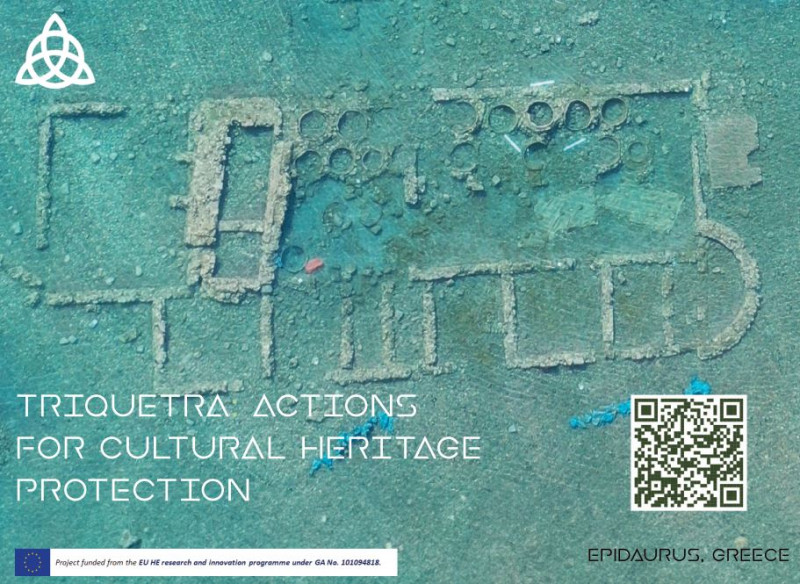These are monuments from Greece, Germany, Switzerland, Italy, Poland and Cyprus in which the effects of climate change are studied
Monuments from 6 countries are being digitized in order to highlight the pressure of the climate crisis but also to propose risk mitigation and recovery measures.
These are monuments from Greece, Germany, Switzerland, Italy, Poland and Cyprus in which the effects of climate change are studied in the context of the TRIQUETRA project which started on 1/1/2023 with a budget of 4 million euros from Horizon Europe.
“We want to digitize and highlight the roots of Europe to preserve cultural heritage monuments that are greatly affected by the pressure of climate change” explained the president of Geosystem Hellas Betty Charalambopoulou at an event on the topic “Impacts of climate change on cultural heritage” held in the context of the 88th TIF.
“In Greece, a 5th-century temple in Aegina Colonna, the underwater Roman villa in Epidaurus and Kalapodi are piloted with the aim of digitizing them and creating models that will help measure the risk due to climate change and anthropogenic factors. It is the only project in which 5 Ministries of Culture and other scientific collaborators participate”.
According to Ms. Charalampopoulou, they are monuments that have different characteristics, such as in Aegina which is next to the coast and there are landslides due to the large waves that occur due to climate change and anthropogenic factors (frequent coastal ferry routes).
More generally, Triquetra’s overall approach is based on three distinct steps that have to do with identification, quantification and mitigation of risk. Speaking at the event, the associate professor of the Department of Civil Engineering, AUTH Charalambos Georgiadis clarified that through the project it will be determined which areas will be affected by the water level rise over the next 50 years.
“Our goal is to digitize these monuments so we can have metric information to assess restoration issues, studying the risk and pressure from climate change affecting cultural heritage,” he said.
For Dr. Themistocles Billis, architect-engineer from the Archaeological German Institute, in Kalapodi, which is considered one of the most important archaeological sites in Greece, there are various problems, mainly due to the frost. Through the project, it will be studied how it affects the materials of the archaeological site, while the conclusions will be the guide for other monuments that also suffer from frost.
“Meteorological conditions can lead to degradation and the issue of the impact of climate change on cultural heritage monuments is multi-parametric. The concept of risk refers to the future, so we want climate information for the future. Therefore, periodic models are used as tools, local characteristics are analyzed and we do simulations in order to have a risk calculation for the future,” Prodromos Zanis, Professor of Meteorology and Climatology at the Department of Geology of the AUTH, emphasized for his part.
In the underwater Roman villa in Epidaurus, as part of the project, an impression is made with the aim of creating a detailed model of the ground both on the surface and at the bottom, explained the professor of the Department of Agricultural and Topographical Engineering, AUTH, Konstantinos Tokmakidis
“We scanned the entire archaeological site, processed it and produced a 3D model,” explained the professor speaking at the event.
Source :Skai
I am Frederick Tuttle, who works in 247 News Agency as an author and mostly cover entertainment news. I have worked in this industry for 10 years and have gained a lot of experience. I am a very hard worker and always strive to get the best out of my work. I am also very passionate about my work and always try to keep up with the latest news and trends.











